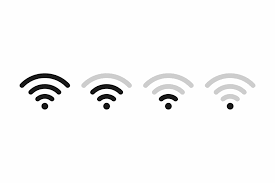We've all been there. You're streaming your favorite show or in the middle of an important video call, and suddenly... the dreaded buffering wheel. Wi-Fi dead zones are a frustrating reality in many homes, but thankfully, they're not an insurmountable problem. Here's your guide to understanding and eliminating those pesky signal dropouts.
What Causes Wi-Fi Dead Zones?
Before we dive into solutions, let's understand the culprits behind weak Wi-Fi signals:
- Distance: Wi-Fi signals weaken the further they travel from the router.
- Obstacles: Walls, floors, furniture, and even appliances can interfere with Wi-Fi signals.
- Interference: Other electronic devices, like microwaves and cordless phones, can disrupt Wi-Fi frequencies.
- Building Materials: Materials like concrete, brick, and metal can significantly block Wi-Fi signals.
- Router Placement: An improperly placed router (e.g., tucked away in a corner or cabinet) can limit its reach.
Tips to Boost Your Wi-Fi Signal
- Optimize Router Placement
- Use a Wi-Fi Extender
- Minimize Interference
- Consider a Wired Connection
- Update Your Router's Firmware
- Wi-Fi Analyzer Apps
- Advanced Solutions
Place your router in a central location in your home. Elevate the router for better signal distribution. Keep it away from walls, corners, and interfering devices.
Extend your Wi-Fi network's coverage by strategically placing Wi-Fi extenders to amplify the signal in dead zones. Mesh Wi-Fi systems offer a more advanced and seamless solution for larger homes.
Identify and relocate devices that may be causing interference. Change your Wi-Fi channel to a less congested one. (You can usually do this in your router's settings.)
For devices that require a stable connection, like gaming consoles or smart TVs, use an Ethernet cable for a direct, reliable connection.
Router manufacturers often release firmware updates that improve performance and security. Check your router manufacturer's website for updates.
Use a Wi-Fi analyzer app on your smartphone to visualize signal strength in different areas of your home and identify potential sources of interference.
Powerline Adapters: Utilize your home's electrical wiring to transmit internet signals, bypassing
obstacles that block Wi-Fi.
MoCA Adapters: Use coaxial cables (like those used for cable TV) to create a fast and reliable network
connection.



